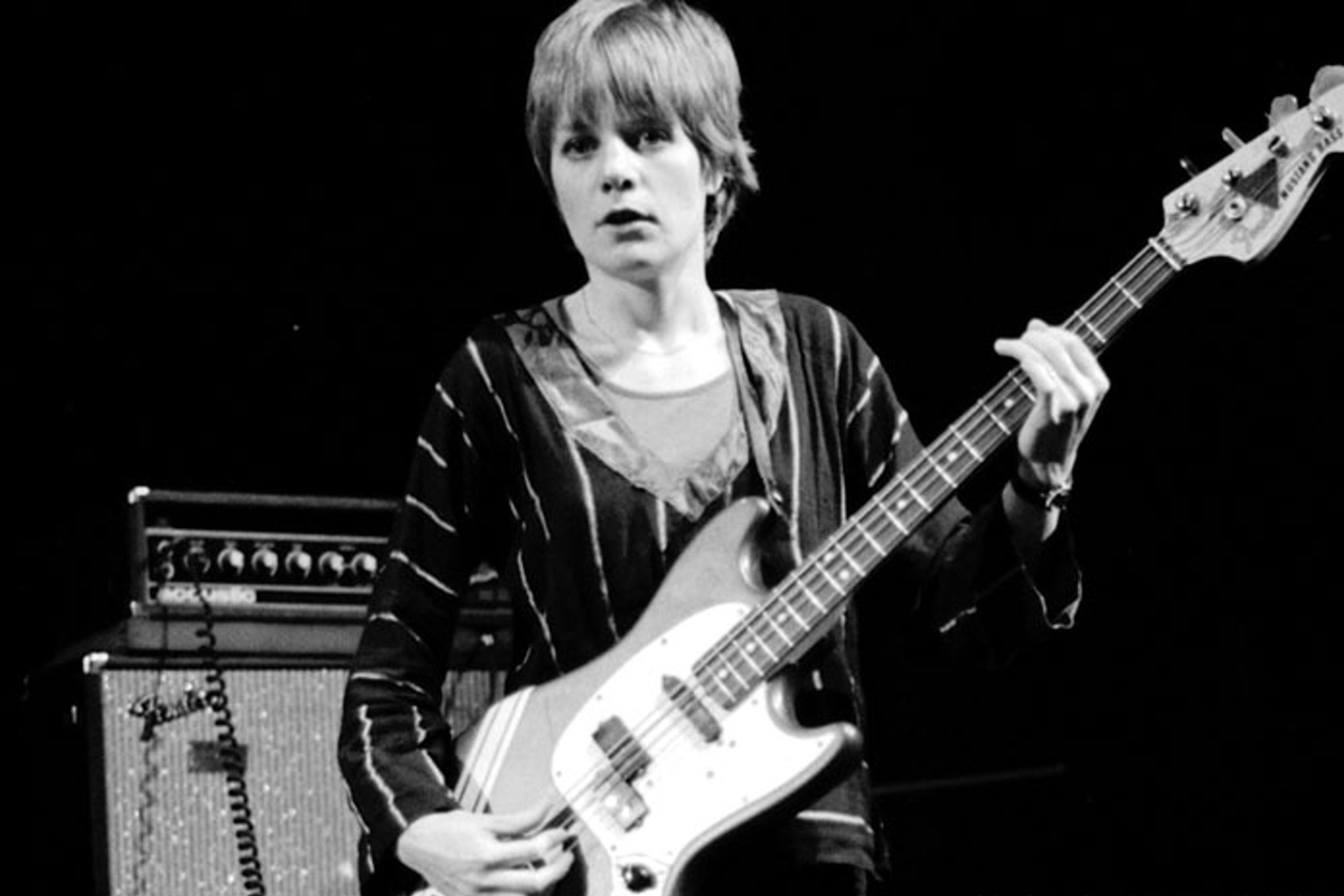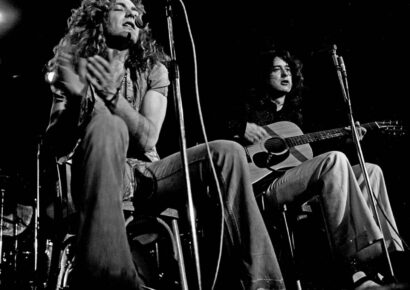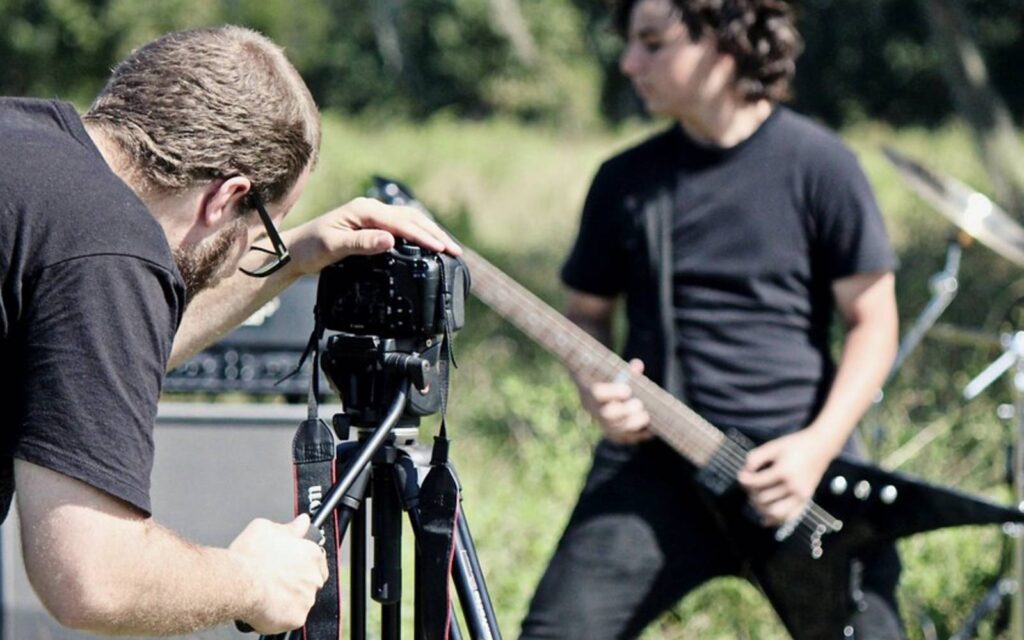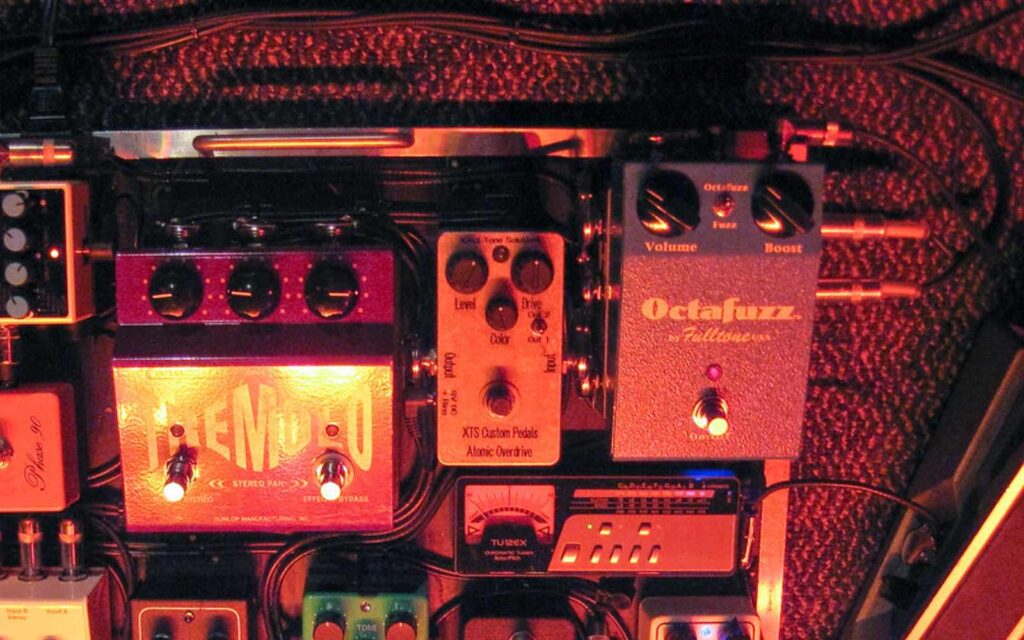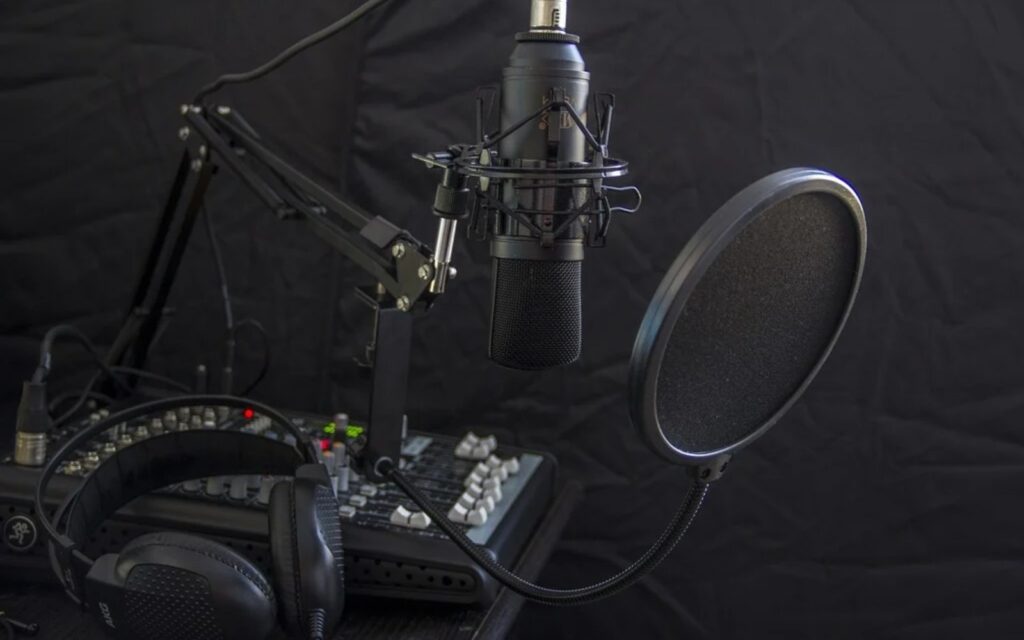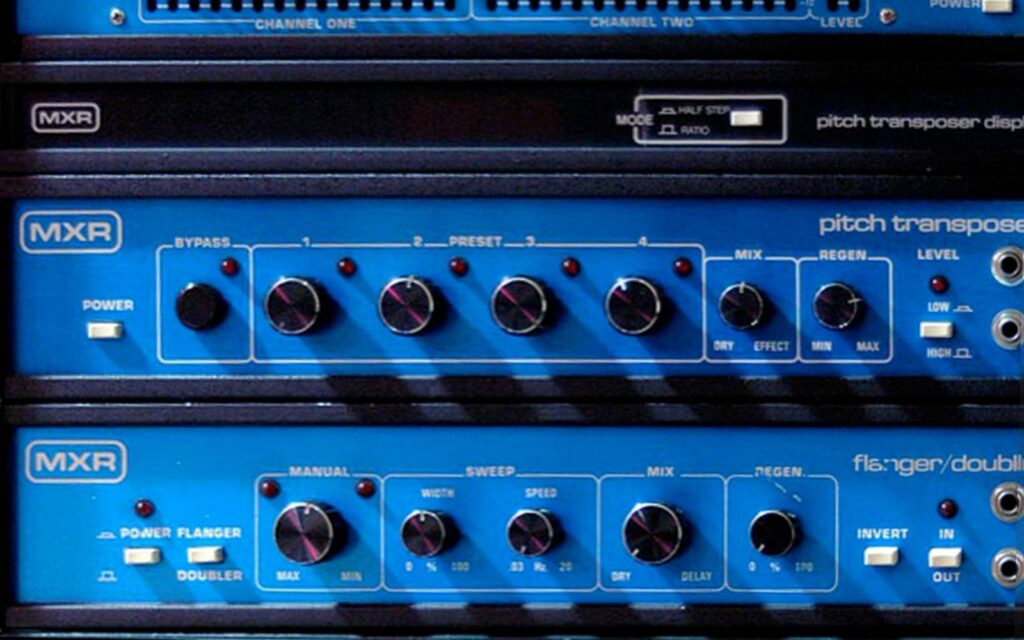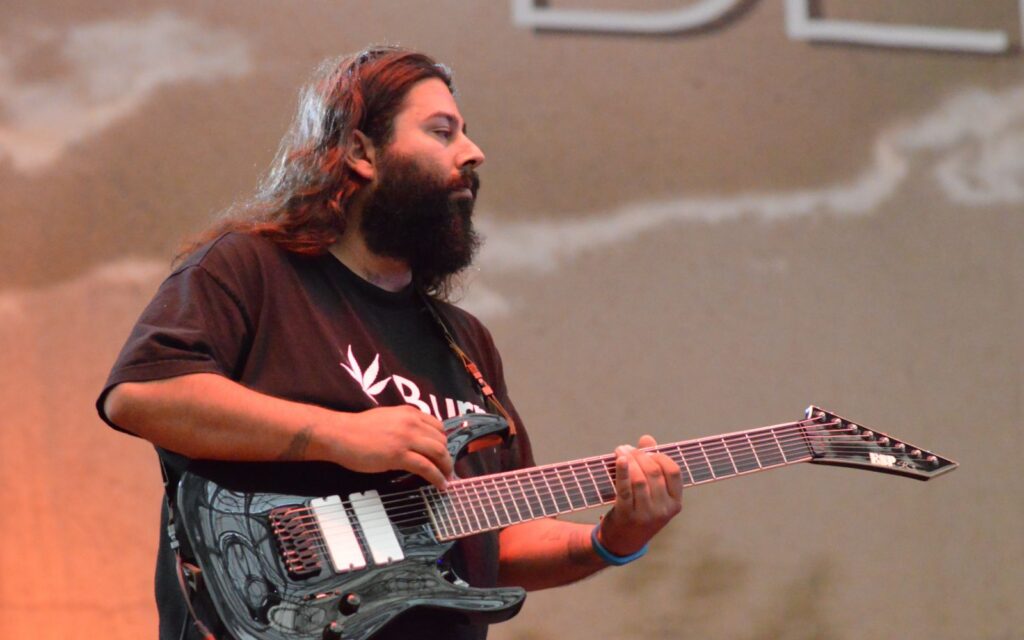Diving into some of the artists who've rocked one of the most beloved short scales in the game - the Fender Mustang Bass.
The Fender Mustang Bass boasts a rich history and an enduring legacy; a favourite among musicians since its inception in the mid-1960s. Introduced in 1966 as part of the Mustang series, it was intended as a more compact and affordable alternative to Fender’s larger bass models. As Fender’s market shifted towards younger musicians and students influenced the decision to produce a shorter scale, 30” as opposed to the regular 34” of an electric bass, which served to assist players, as well as allowing easier execution of more complex riffs, licks and grooves for guitar players taking the step to a bass guitar.
Read all the latest features, columns and more here.
This feature also contributed to its unique tone, offering a punchy, round sound that distinguished it from other basses.
Throughout its history, the Mustang Bass has seen various iterations and updates, including the inclusion of a single-coil pickup or split-coil pickup, catering to different player preferences. Its versatility made it a popular choice among a wide range of musicians, from punk and alternative rock to indie and jazz genres.
Today, we’re diving into some of the iconic artists who have brought this short scale beauty into the spotlight, across a variety of genres, from punk to new wave and beyond!
Tina Weymouth
“I stuck with the Precision until early 1976,” legendary Talking Heads and Tom Tom Club bassist Tina Weymouth told Reverb in a 2018 interview, having been asked about the various models that have graced her gigging arsenal over the years.
“When Robert Palmer brought Chris Blackwell of Island Records down to see us. He said, ‘Would you like to jam?’ He took us over to the Island Records place, a little townhouse in the West Village, and he had a little Fender Mustang Bass. I thought, now, this is probably gonna be easier for me to start moving a little faster with.”
As mentioned prior, many players of smaller stature Fender Mustang Bass for its comfortable short-scale neck, making it easier for her to play intricate basslines. Its unique tonal character also allowed her to carve out a distinctive sound that became a signature element of Talking Heads’ music, enhancing her creative expression as a bassist.
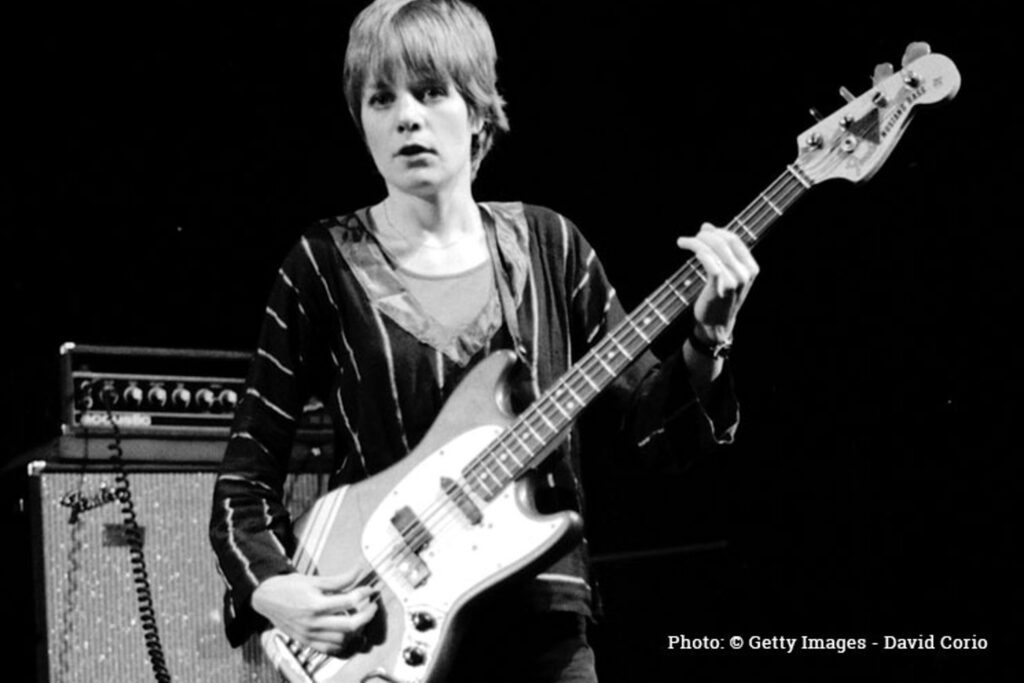
The writer of some of the most famous bass lines in rock music history, not least the characterful, driving arrangement of notes that open “Psycho Killer”, Weymouth is certainly one of the key figures responsible for putting the Fender Mustang Bass on the map.
Bill Wyman
Bill Wyman handled the bottom end for the Rolling Stones from 1962 until 1993, often with a Mustang in his hands. Sharp-eyed viewers will notice the unique racing stripe adorning the body of his bass. Racing stripes were a staple of the Competition Series from Fender produced through the late 60s and early 70s.
Pushing the auto-influence a step further than just custom colours like Fiesta Red, Sonic Blue and Shell Pink, the Competition Series Mustangs were available in guitars and basses, featuring a racing stripe across the bass’s belly.
Justin Meldal-Johnsen
Justin Meldal-Johnsen (JMJ) is one of the coolest players to ever do it. Having produced, performed and written with the likes of Poppy, Beck, Paramore, Nine Inch Nails, M83, Air, and St. Vincent, while also being the bassists and keyboard player for Nine Inch Nails during the 2000s.
JMJ has played a Mustang bass so extensively he’s been honoured with his own artists signature models, most recently in a cool road worn finish in either black or Faded Daphne Blue. After years of being a session musician, producer and engineer, JMJ’s wants and needs culminate in this bass, combining form, function and rugged good looks.
Fred Smith
Television were at the forefront of New York’s punk scene in the late 70s, their bottom end handled by Fred Smith after he left Blondie in the mid-70s.
The fast nature of the pioneering band lends itself well to a Mustang bass, the shorter scale allowing Smith to keep up with guitarists Tom Verlaine and Richard Lloyd. The split single-coil sound paired well with the various guitar that Verlaine and lloyd used, raising from Fender Strats to Gibson Les Pauls.
Kim Gordon (Sonic Youth)
Fred Smith’s influence was not lost on Kim Gordon, bass player and guitarist for Sonic Youth. With their own brand of alternative, grungey punk, Sonic Youth shaped he sound of a generation throughout the 90s.
Often paired with an offset of some description, Gordon played Mustangs extensively, while also deviating to its cousin, the Musicmaster. A simplified Mustang, her Musicmaster was used in the “Bull in the Heather” music video.
Tomethy Furse (The Horrors)
Tomethy Furse of The Horrors handles bass guitar and synth. Doing their own brand of new wavey, gothy rock, The Horrors had huge success in the 2000s, Furse using an (all-black, of course) Fender Mustang to handle the lows.

Influenced by the likes of Joy Division, The Birthday Party and Bauhaus, Furse needed an instrument to play the busy albeit anchoring basslines he wrote and performed with the band. There’s moments where it’s a feature and other where it slinks back into the fold, the Mustang serving both of these purposes with ease.
Lukas Harwood
King Gizzard and the Lizard Wizard are a sight to behold, experience, hear and observe. Legions of fans chase their vinyls for their collections, the band’s live show being a sight and sound extravaganza, all held together with Lukas Harwood’s basslines at the mercy of his Fender Mustang.
While King Gizz’s guitar and bass collection is eye-watering, his Mustang is one stalwart that Lukas relies on consistently for its nimble neck and laser-focused, 60s sound. He uses a particularly cool olympic white Mustang, also having a Musicmaster in the arsenal!
Jack Dolan
Jack Dolan of Chicago-based band Twin Peaks rounds out our list of Mustang players, using one extensively for Twin Peaks’ brand of indie rock. The Mustang doesn’t bolster quite the deep, deep low of a Jazz or Precision bass, instead opting for low-mid presence and attack, a perfect pairing for the band’s jangly sound.
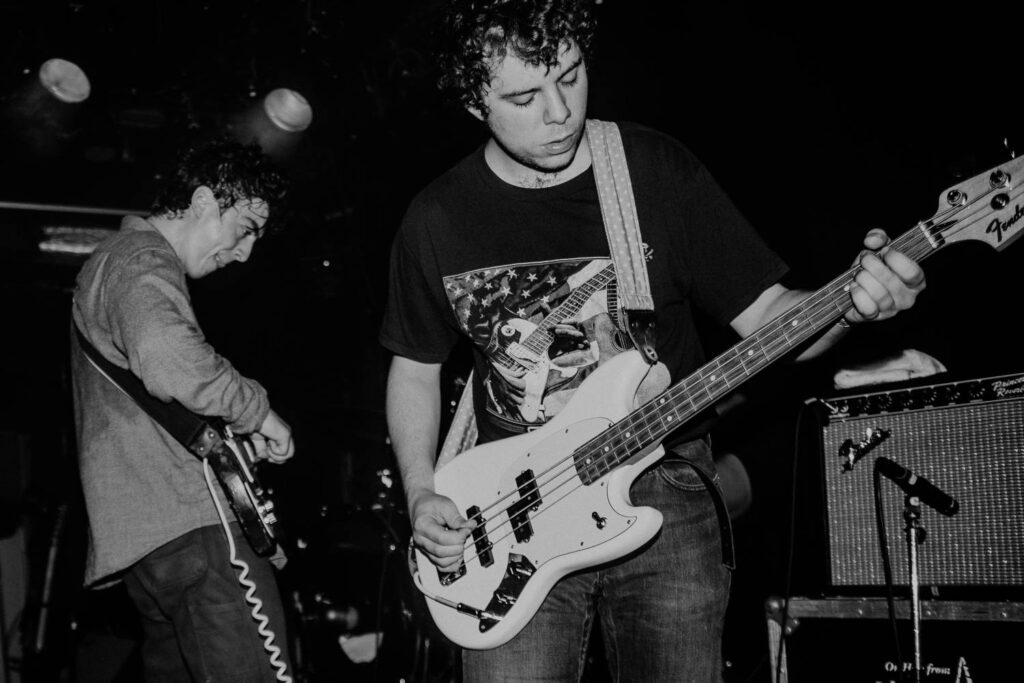
Photo credit: All Things Loud
Blending garage rock and a uniquely 60s sound, Doland’s playing moves frantically around th fretboard, the Mustang’s playability and short scale helping him to do that.
For more information about the Fender Mustang Bass, visit Fender Music Australia.
